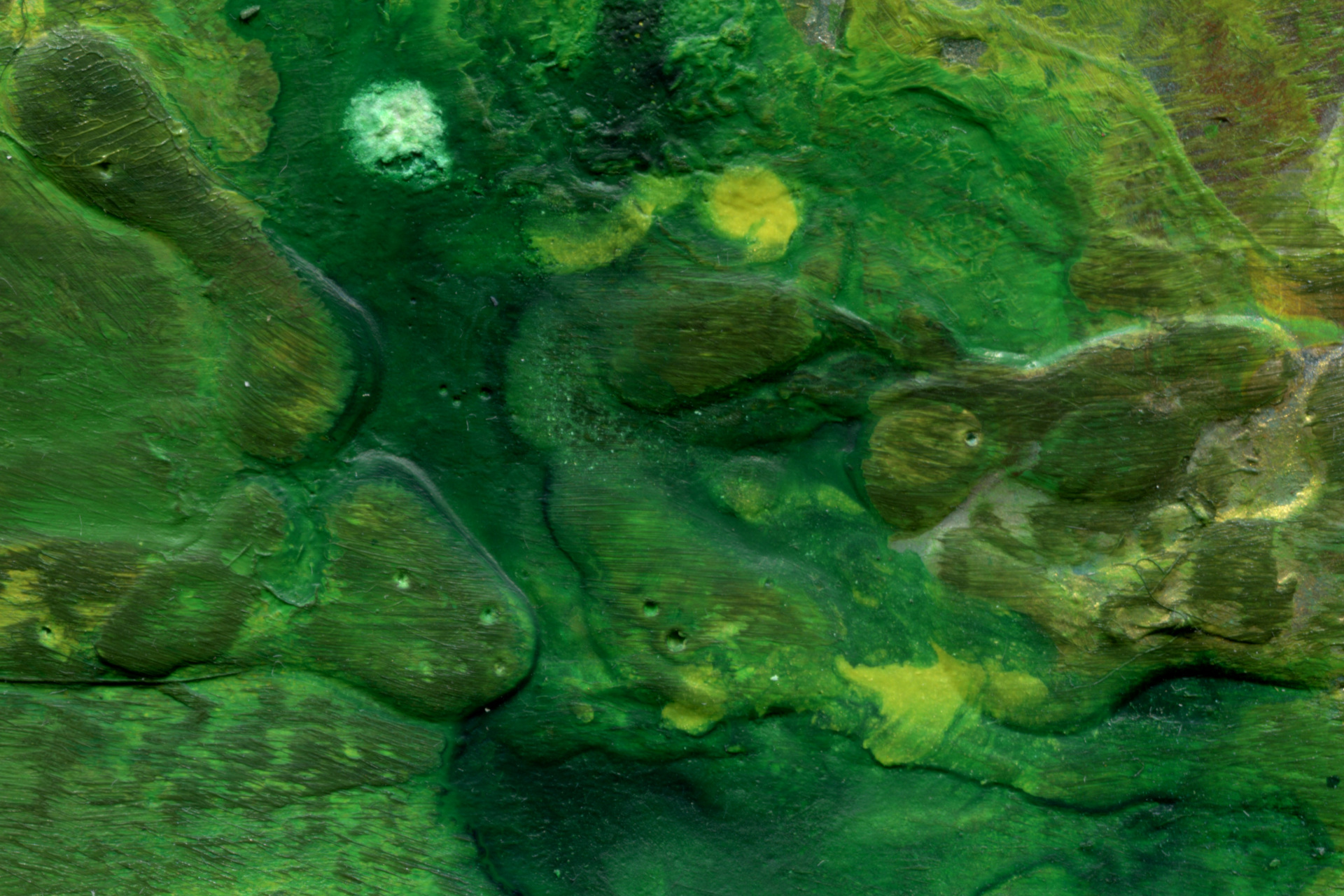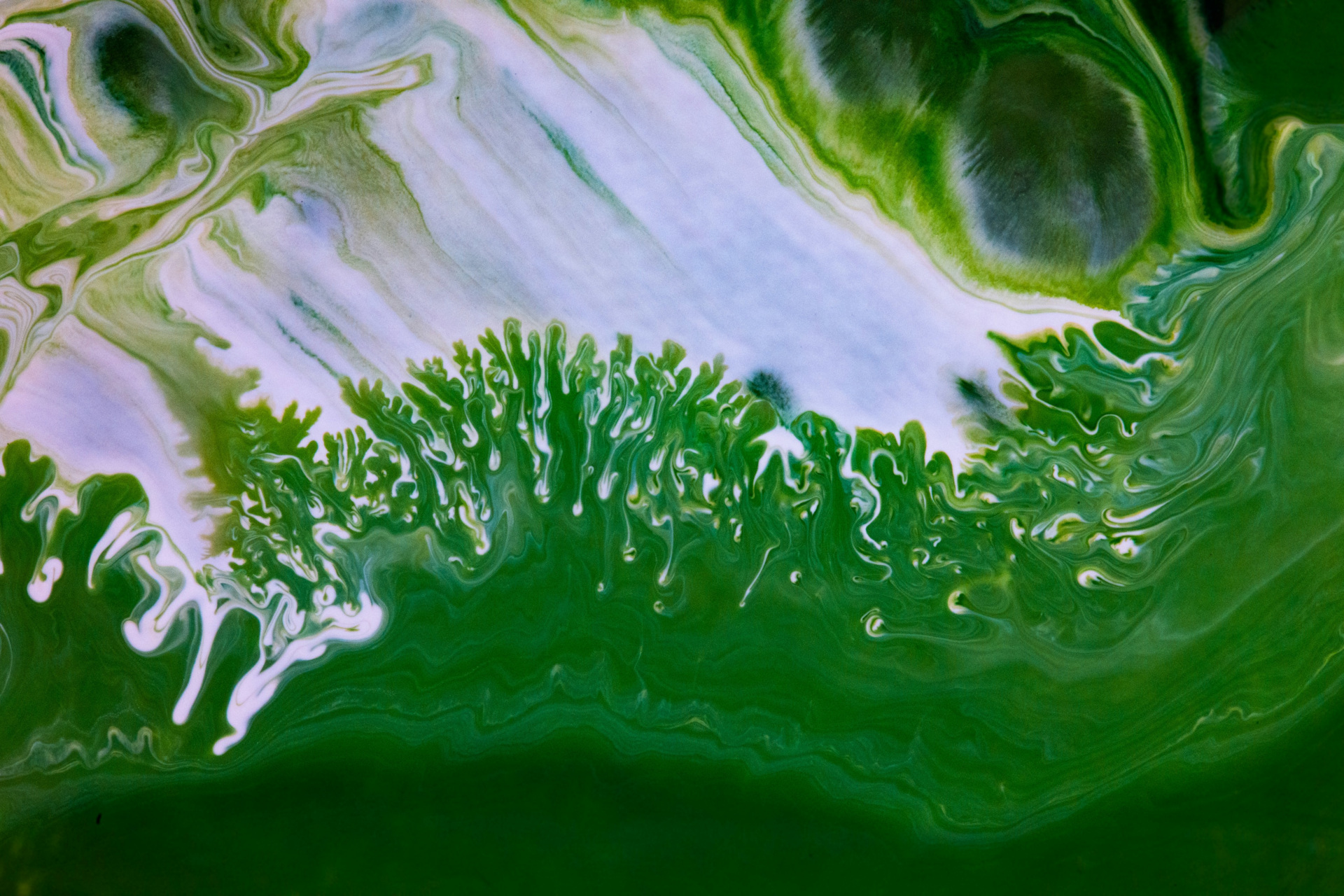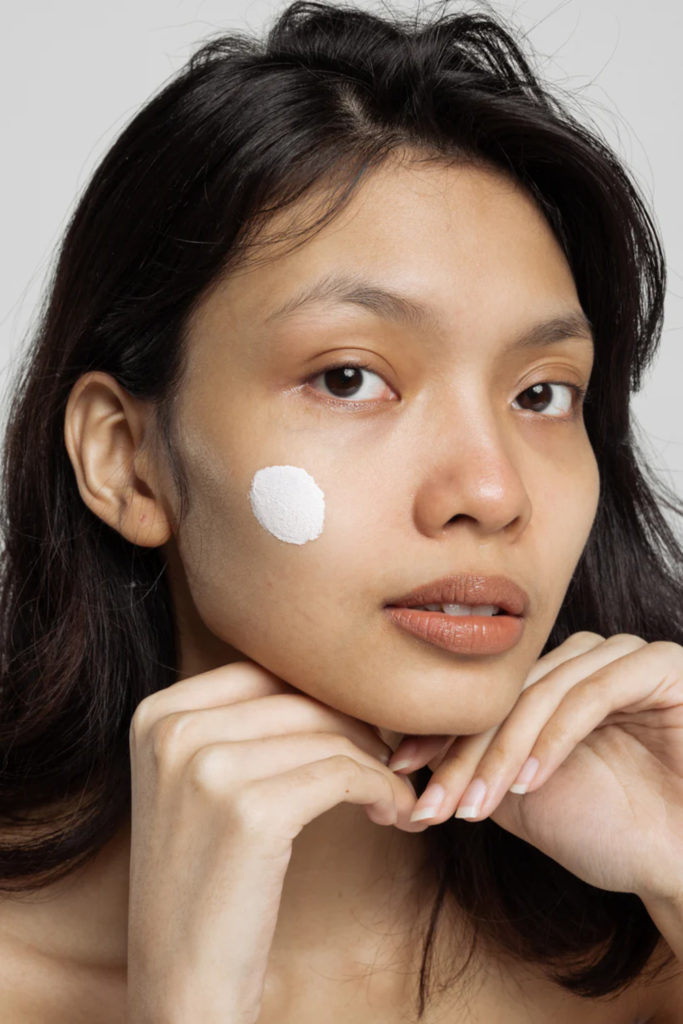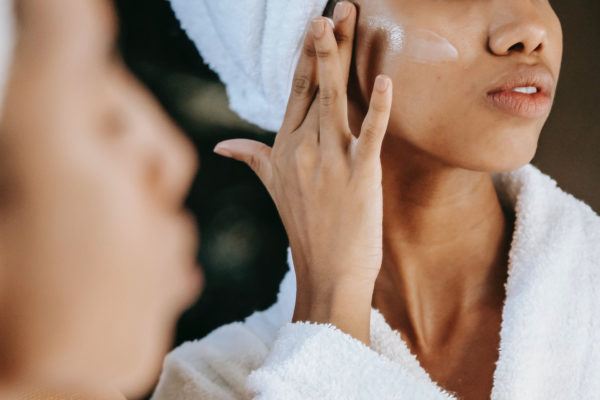Is Algae The Super Skincare Ingredient Of 2024? We Think So
By
1 year ago
Seaborn skincare is in - here's everything you need to know

It seems like new beauty buzzwords creep up everyday at this point – so how do we sift through them to find the real hidden gems? One ingredient we’ve seen making a splash recently is algae, which boasts a multi-purpose skincare solution. If your interest is piqued, read on. We asked the experts what to expect from using algae in our usual routine, and what the impacts are (good and bad) on our skin.
What Is Algae?
‘Algae is a broad term used to describe a group of plant organisms,’ explains skincare expert and founder of Transformulas, Rosi Chapman. ‘While it can found everywhere on earth, the form of algae commonly used in skincare is marine algae. Algae contain 10 times more diverse compounds compared to other cosmetically-used plants, which means it can offer more positive skin properties. This is because of algae’s ability to survive in extremely harsh conditions which has caused it to adapt and evolve.’
Are There Different Types Of Algae?
There are indeed many different types of algae, but Rosi tells us that only some are used in skincare. ‘All types of algae are rich in nutrients and minerals but each one has different benefits for your skin,’ she says. ‘Macroalgae is the most common algae used in skincare, they are commonly referred to as seaweed and fit into three categories: brown algae, red algae and green algae.’
Below, she highlights the three types and their individual benefits:
- Brown algae is best for supporting collagen production and elasticity levels therefore it is the most effective for ageing and youthful skin.
- Red algae is considered to be the most effective for UV protection and keeping the skin safe from sun damage.
- Green algae is less popular, but is often used to prevent fine lines and wrinkles and to promote smooth, firm skin.
@sciencey_melly Replying to @xobeautyaddict #science #sciencefacts ♬ original sound – Melly the Science Geek🧪
What Are The Benefits Of Algae Skincare?
We’ve already briefly mentioned what the main types of algae used in skincare can do, but there’s a lot to cover when it comes to all of their benefits. ‘Algae is an extremely powerful ingredient to be used in skincare and it has many benefits for your appearance,’ begins Rosi. ‘Algae is rich in minerals, nutrients and antioxidants which have many positive effects on the skin, including preventing ageing and promoting youthful skin.’
Let’s take a look at some specific benefits…
Collagen Protection
The biggest bonus when it comes to using algae, however, is how it works with our collagen supplies: ‘The natural antioxidants in the algae reduce collagen-destroying enzymes in the body,’ Rosi explains. ‘Collagen is what helps your skin to maintain its elasticity and youth and so by keeping its levels high, you can reduce fine lines and wrinkles.’
Hydration
And then there’s also its ability to pack a big ol’ hydration boost, Rosi tells us. ‘One of the main and most well-known benefits of algae is its hydration properties, a vital factor for any skincare product,’ she explains. ‘It acts as a water-attracting agent which helps to draw in moisture where needed to satisfy, nourish and rejuvenate the needs of dry skin craving hydration.’
Brighter Skin
To top it off, algae is also great at giving skin a luminous glow. ‘It is also often used as a skin brightener to promote radiance and can reduce pigmentation,’ says Rosi. ‘Algae contains compounds which make them natural tyrosinase inhibitors – this means that they can reduce dark spots and aid in brightening the skin.’
What Kinds Of Skincare Products Can You Find Algae In?
So, where do we start on our hunt for algae skincare? ‘Algae can be used in all skin products, however, they are most popular in moisturisers due to their hydrating properties,’ says Rosi. ‘Macroalgae, specifically macrocystis pyrifera, is known for its brilliant moisturising and nourishing the skin. Algae can also be seen in serums, eye creams, oils and cleansers too – depending on your skin type and need, you should choose the correct product for you.’

(c) Solen Feyissa, Unsplash
Is Algae Skincare More Compatible With Certain Skin Types?
Speaking of the correct product for you, how can we know that algae is compatible with our skin type? Lucky for us, it seems to be a pretty good fit for most people, according to Rosi. ‘Although algae is a very powerful ingredient, it is also very gentle and can therefore be used on most skin types,’ she says. ‘It has many biological benefits and very little negative side effects, therefore algae skincare can be used by many. It is especially beneficial for those with damaged and dehydrated skin due to its hydrating and repairing benefits, however it may need to be approached with caution by those with acne-prone skin due to its pore-clogging potential.’
Can Algae Clog Pores?
While doing our research on the topic, we heard whispers (and shouts) that algae can clog your pores. Unfortunately, this is true, but Rosi explains that this can be avoided. ‘It is true that some types of algae have been known to clog pores,’ she says. ‘Algae is a potentially comedogenic ingredient, which means that it can sometimes clog pores – however, this is often determined by the formulation of your product rather than the algae included.
‘Nothing has been proven and so my advice would be to tread carefully if you have acne-prone skin,’ she continues. ‘Maybe stick to one singular algae-based product instead of incorporating it into your entire routine. A moisturiser is a wise choice as it is the middle part of your routine and can therefore be layered with other nourishing ingredients too. I would start by using your algae-based product every three days and then after a week, if there are no visible skin concerns, take this down to every two days and then to daily after another week.’
@your.estie.ella Replying to @Joshua everyone’s skin is different and it 100% depends on how acne prone YOU are #simpleskincare #acneproneskin #sensitiveskin #adultacne #skincareingredients ♬ original sound – Your.Estie.Ella
Some skincare professionals are a bit more wary of algae when it comes to acne, however. ‘Algae extracts can have a ton of benefits,’ says Ella Elston. Ella is a certified esthetician and acne specialist, and discusses the impact of algae on skin in the above TikTok video. ‘There are some that detox the skin, there are some that help with hydration, there are some that help with fine lines, there are some that help with collagen stimulation. They all have antioxidants in them, which overall are great.
‘However, it is sort of commonly known that for people who are super acne prone – and there are different levels of being acne prone – algae extracts are more than likely going to increase break-outs. They can very easily clog pores, so if this is a concern of yours I would just pass on algae extracts as a whole… If you are mildly acne prone, then you can probably get away with using the majority of algae extracts.’
The Final Word: Is Algae Good For Your Skin?
For the most part, yes, algae is good for your skin. Algae covers off multiple bases – hydration, pigmentation and collagen depletion – making it something of a super skincare ingredient, while still remaining fairly gentle on skin. The only drawback is its potential pore-clogging capabilities, but, as we’ve found out, a good formula can put these worries to rest most of the time. All things considered, we’d say algae is definitely one to incorporate into your skincare routine.
Featured image: Paul Bblenkhorn, Unsplash










